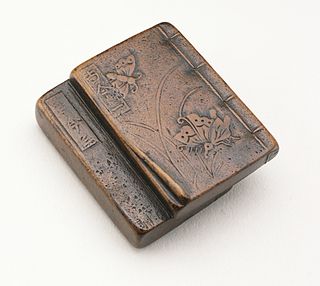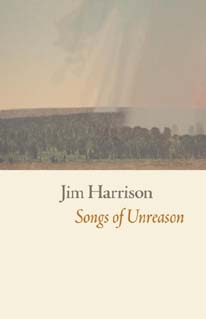Related Research Articles

Haiku is a type of short form poetry that originated in Japan, and can be traced back from the influence of traditional Chinese poetry. Traditional Japanese haiku consist of three phrases composed of 17 morae in a 5, 7, 5 pattern; that include a kireji, or "cutting word"; and a kigo, or seasonal reference. However, haiku by classical Japanese poets, such as Matsuo Bashō, also deviate from the 17-on pattern and sometimes do not contain a kireji. Similar poems that do not adhere to these rules are generally classified as senryū.

Novial is an international auxiliary language (IAL) created by Danish linguist Otto Jespersen in 1928. It was designed to facilitate human communication between speakers of different native languages. The name of the language is a blend of the Novial word novi and IAL.

Poetry is a form of literary art that uses aesthetic and often rhythmic qualities of language to evoke meanings in addition to, or in place of, literal or surface-level meanings. Any particular instance of poetry is called a poem and is written by a poet. Poets use a variety of techniques called poetic devices, such as assonance, alliteration, euphony and cacophony, onomatopoeia, rhythm, and sound symbolism, to produce musical or other artistic effects. Most written poems are formatted in verse: a series or stack of lines on a page, which follow a rhythmic or other deliberate structure. For this reason, verse has also become a synonym for poetry.

Matsuo Bashō; born Matsuo Kinsaku, later known as Matsuo Chūemon Munefusa was the most famous Japanese poet of the Edo period. During his lifetime, Bashō was recognized for his works in the collaborative haikai no renga form; today, after centuries of commentary, he is recognized as the greatest master of haiku. He is also well known for his travel essays beginning with Records of a Weather-Exposed Skeleton (1684), written after his journey west to Kyoto and Nara. Matsuo Bashō's poetry is internationally renowned, and, in Japan, many of his poems are reproduced on monuments and traditional sites. Although Bashō is famous in the West for his hokku, he himself believed his best work lay in leading and participating in renku. As he himself said, "Many of my followers can write hokku as well as I can. Where I show who I really am is in linking haikai verses."

Prose poetry is poetry written in prose form instead of verse form while otherwise deferring to poetic devices to make meaning.
"In a Station of the Metro" is an Imagist poem by Ezra Pound published in April 1913 in the literary magazine Poetry. In the poem, Pound describes a moment in the underground metro station in Paris in 1912; he suggested that the faces of the individuals in the metro were best put into a poem not with a description but with an "equation". Because of the treatment of the subject's appearance by way of the poem's own visuality, it is considered a quintessential Imagist text.

A kigo is a word or phrase associated with a particular season, used in traditional forms of Japanese poetry. Kigo are used in the collaborative linked-verse forms renga and renku, as well as in haiku, to indicate the season referred to in the stanza. They are valuable in providing economy of expression.

Japanese poetry is poetry typical of Japan, or written, spoken, or chanted in the Japanese language, which includes Old Japanese, Early Middle Japanese, Late Middle Japanese, and Modern Japanese, as well as poetry in Japan which was written in the Chinese language or ryūka from the Okinawa Islands: it is possible to make a more accurate distinction between Japanese poetry written in Japan or by Japanese people in other languages versus that written in the Japanese language by speaking of Japanese-language poetry. Much of the literary record of Japanese poetry begins when Japanese poets encountered Chinese poetry during the Tang dynasty. Under the influence of the Chinese poets of this era Japanese began to compose poetry in Chinese kanshi); and, as part of this tradition, poetry in Japan tended to be intimately associated with pictorial painting, partly because of the influence of Chinese arts, and the tradition of the use of ink and brush for both writing and drawing. It took several hundred years to digest the foreign impact and make it an integral part of Japanese culture and to merge this kanshi poetry into a Japanese language literary tradition, and then later to develop the diversity of unique poetic forms of native poetry, such as waka, haikai, and other more Japanese poetic specialties. For example, in the Tale of Genji both kanshi and waka are frequently mentioned. The history of Japanese poetry goes from an early semi-historical/mythological phase, through the early Old Japanese literature inclusions, just before the Nara period, the Nara period itself, the Heian period, the Kamakura period, and so on, up through the poetically important Edo period and modern times; however, the history of poetry often is different from socio-political history.
Lucien Stryk was an American poet, translator of Buddhist literature and Zen poetry, and former English professor at Northern Illinois University (NIU).
Hokku is the opening stanza of a Japanese orthodox collaborative linked poem, renga, or of its later derivative, renku. From the time of Matsuo Bashō (1644–1694), the hokku began to appear as an independent poem, and was also incorporated in haibun. In the late 19th century, Masaoka Shiki (1867–1902) renamed the standalone hokku as "haiku", and the latter term is now generally applied retrospectively to all hokku appearing independently of renku or renga, irrespective of when they were written. The term hokku continues to be used in its original sense, as the opening verse of a linked poem.
Imaginism was a Russian avant-garde poetic movement that began after the Revolution of 1917.
A monostich is a poem which consists of a single line.

This glossary of literary terms is a list of definitions of terms and concepts used in the discussion, classification, analysis, and criticism of all types of literature, such as poetry, novels, and picture books, as well as of grammar, syntax, and language techniques. For a more complete glossary of terms relating to poetry in particular, see Glossary of poetry terms.
This is a glossary of poetry terms.

Gabriel Rosenstock is an Irish writer who works chiefly in the Irish language. A member of Aosdána, he is poet, playwright, haikuist, tankaist, essayist, and author/translator of over 180 books, mostly in Irish. Born in Kilfinane, County Limerick, he currently resides in Dublin.
The volta is a rhetorical shift or dramatic change in thought and/or emotion. Turns are seen in all types of written poetry. In the last two decades, the volta has become conventionally used as a word for this, stemming supposedly from technique specific mostly to sonnets. Volta is not, in fact, a term used by many earlier critics when they address the idea of a turn in a poem, and they usually are not discussing the sonnet form. It is a common Italian word more often used of the idea of a time or an occasion than a turnabout or swerve.

Anatoly Kudryavitsky is a Russian-Irish novelist, poet, editor and literary translator.
A haiku in English is an English-language poem written in a form or style inspired by Japanese haiku. Like their Japanese counterpart, haiku in English are typically short poems and often reference the seasons, but the degree to which haiku in English implement specific elements of Japanese haiku, such as the arranging of 17 phonetic units in a 5–7–5 pattern, varies greatly.

This article describes the syntax of clauses in the English language, chiefly in Modern English. A clause is often said to be the smallest grammatical unit that can express a complete proposition. But this semantic idea of a clause leaves out much of English clause syntax. For example, clauses can be questions, but questions are not propositions. A syntactic description of an English clause is that it is a subject and a verb. But this too fails, as a clause need not have a subject, as with the imperative, and, in many theories, an English clause may be verbless. The idea of what qualifies varies between theories and has changed over time.

Songs of Unreason is a collection of poems by American writer Jim Harrison published in 2011 by Copper Canyon Press. It was Harrison's thirteenth and penultimate collection. Sixty-seven poems make up the collection, including "Suite of Unreason", a poem of over 350 lines, and a sequence of seven poems relating to rivers. Many of the poems are concerned with the transcendent natural world.
References
- ↑ "From A Poet's Glossary: Verbless Poetry | Academy of American Poets". www.poets.org. Retrieved 2015-12-28.
- ↑ Hirsch, Edward 'A Poet's Glossary', Houghton Mifflin London 2012 ISBN 9780151011957
- ↑ Jespersen, Otto, 'Role of the Verb, Selected Writings'. 1912 ISBN 9780203857199
- ↑ Hearn, Lafcadio 'Lecture' Imperial University, Tokyo, Japan